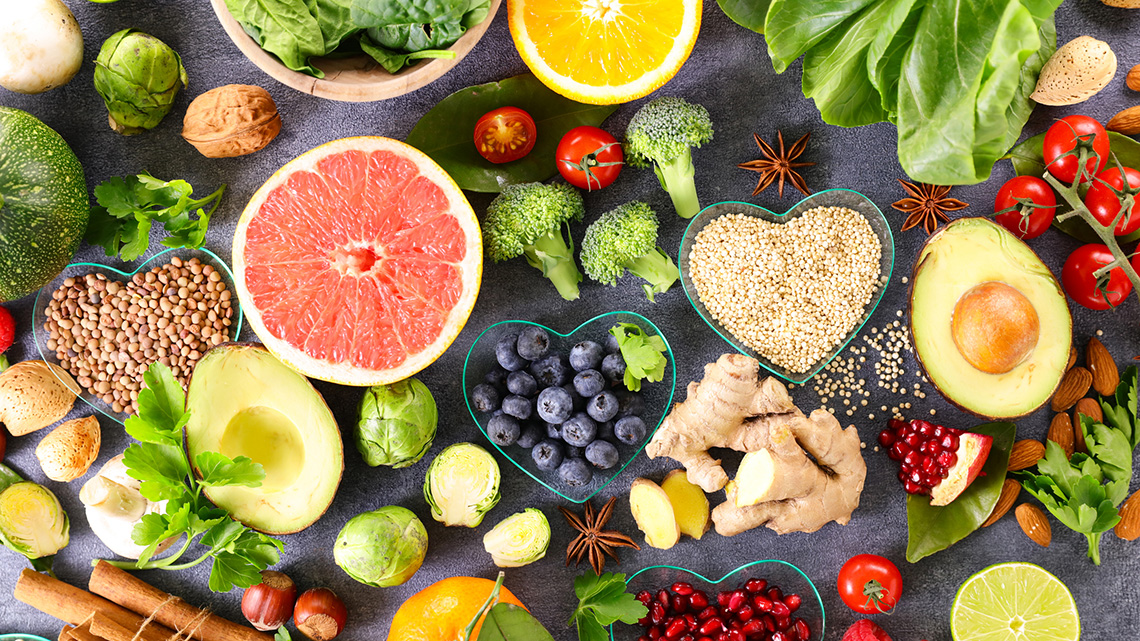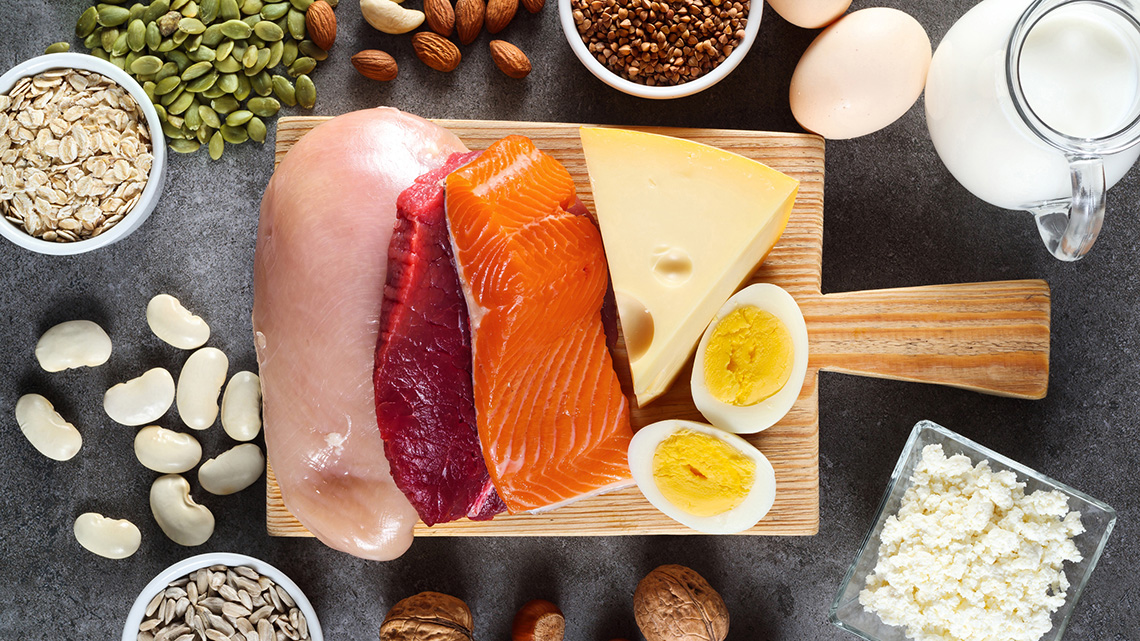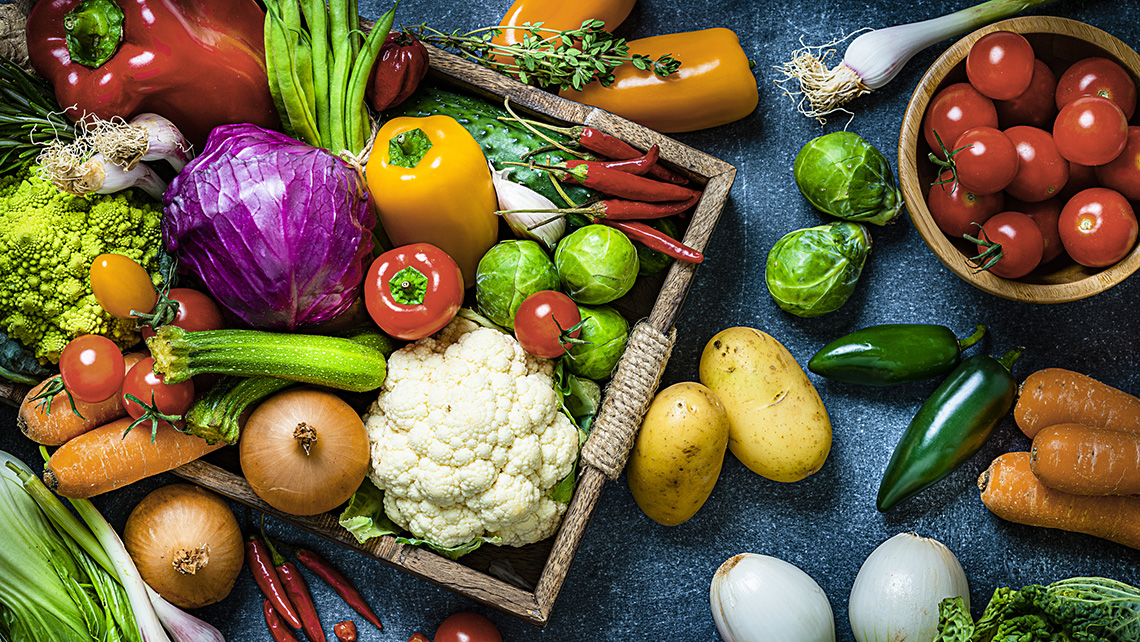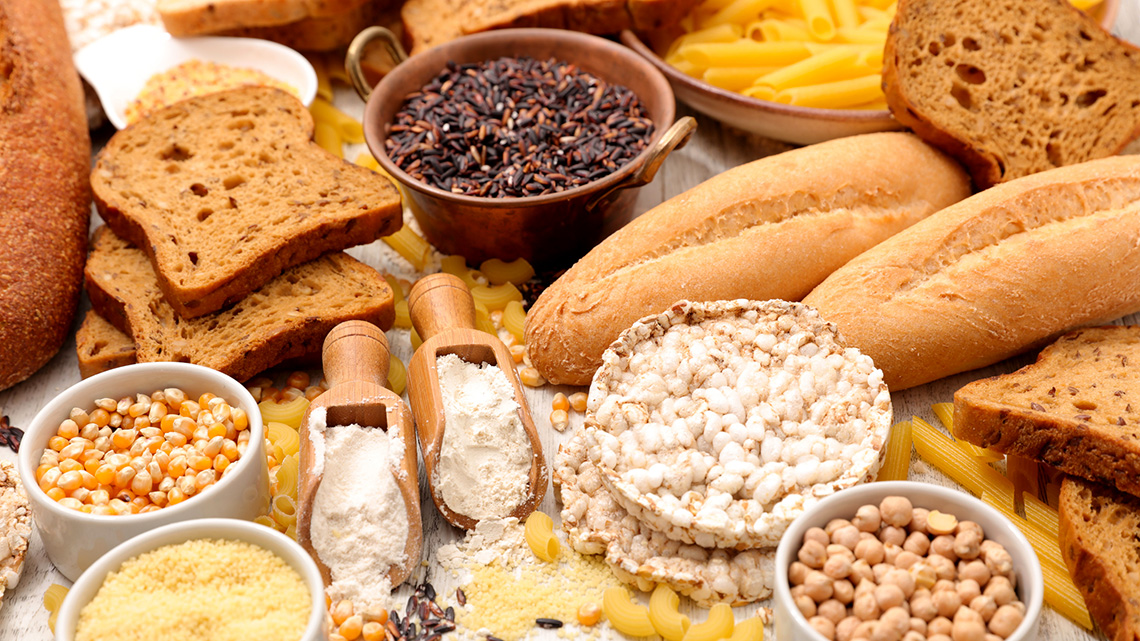Minds On
A healthy plate
Explore the following TVOK News video on Canada’s Food Guide. As you explore the video, consider these questions:
- What might be on a healthy plate?
- What is one thing that surprised you about the video?
- What is one thing you already knew?
Record your thoughts and ideas using any method of your choice.
Explore the following image of some healthy food choices.

What foods do you enjoy? Which of these foods would you like to try?
Action
How can we eat healthier?
Canada’s Food Guide describes ways in which we can eat healthy. We should try to include a variety of foods in our meals regularly.
Student Tips
Healthy food tips
The following are some foods we may include in our meals:
- vegetables and fruits: things like avocados, mangoes, pears, berries, figs, broccoli, cabbage, bok choy
- proteins: things like tofu, beans, lentils, lean meats, fish, eggs, nuts, cheese
- whole grain foods: things like quinoa, whole grain pasta, whole grain bread, whole oats, whole grain brown, wild rice
- drink lots of water
Explore the following image:

The Canada's Food Guide recommends to eat well, live well, and eat a variety of healthy food each day. There is a glass of water and a plate with three parts; one half is fruits and vegetables, one fourth is sources of protein, and one fourth is whole grain foods. In other words, have plenty of fruits and vegetables, eat protein foods, choose whole grain foods, and make water your drink of choice.
Food choices
Your body needs different types of foods every day from different food groups, like those on the plate you just explored.
Each food group helps to give the vitamins, minerals and proteins that bodies need to grow and be strong and healthy.
A healthy meal could include something from each of these food groups.
Press the following tabs to access these types of foods and examples of them.
Fruits are the part of a flowering plant that has the seeds. The skin of a fruit may be thin, tough, or hard. Its insides are often sweet and juicy.
Some examples are:
- apples
- tomatoes
- kiwi
- banana
Vegetables are the part of a plant we can eat. It might have seeds or grow on a vine.
Some examples are:
- lettuce
- spinach
- cauliflower
- brussels sprouts
Proteins are a type of nutrient found in food. They help the body grow and develop.
Some examples are:
- eggs
- lean cuts of beef
- chicken
- nuts and seeds
- fish
Whole grains are types of food that produce seeds that can be eaten.
Some examples are:
- quinoa
- whole grain pasta
- whole grain bread
- whole oats
- whole grain brown rice or wild rice
Healthy fats provide energy for the body. The energy acts like fuel to help the body grow and develop.
Some examples are:
- nuts
- seeds
- vegetable oil
- soft margarine
What category does each food belong to?
Consider the following examples. Decide if the example is a fruit/vegetable, protein, whole grain, or a healthy fat.
Select the correct answer, then press ‘Check Answer’ to see how you did.
Build a meal
It’s your turn to build your own plate of healthy choices! Use the information you’ve learned so far to make good, healthy food choices. You can create your plate in any way you like, but be sure to label each part of your plate.

Here are the steps to build your plate.
Complete the Build My Own Plate activity in your notebook or using the following fillable and printable document. If you would like, you can use speech-to-text or audio recording tools to record your thoughts.
| My Plate |
|---|
|
|
Press the ‘Activity’ button to access Build My Own Plate.
You can share your response using a method of your choice.
Consolidation
Healthy choices
There are many healthy choices when creating meals.
Use your knowledge to help you to identify the following food sources:
1. Three (3) different protein sources
2. Five (5) different vegetables
3. Three (3) different grains
Record your answer using any method of your choice.
Explore the images to help you identify the food sources.
Why is it important to choose foods from different food groups? Include this in your answer.
Reflection
How do you feel about what you have learned in this activity? Which of the next four sentences best matches how you are feeling about your learning? Press the button that is beside this sentence.
I feel...
Now, record your ideas about your feelings using a voice recorder, speech-to-text, or writing tool.


